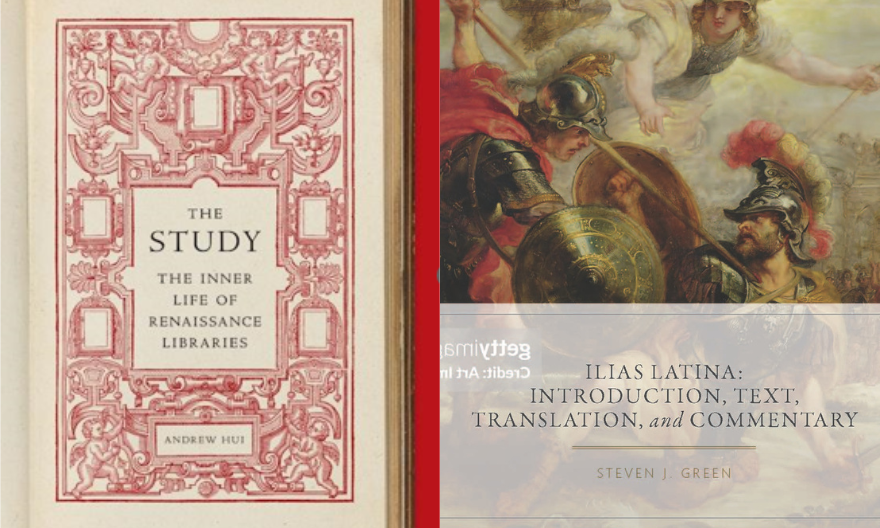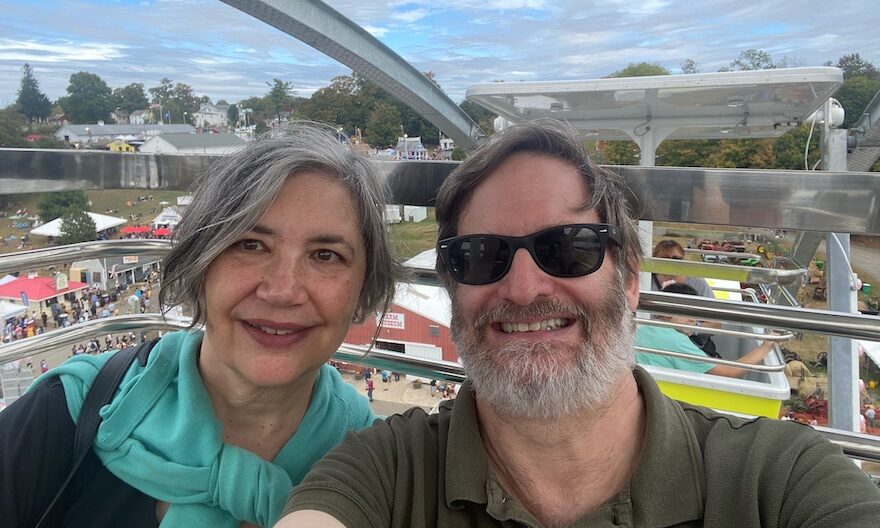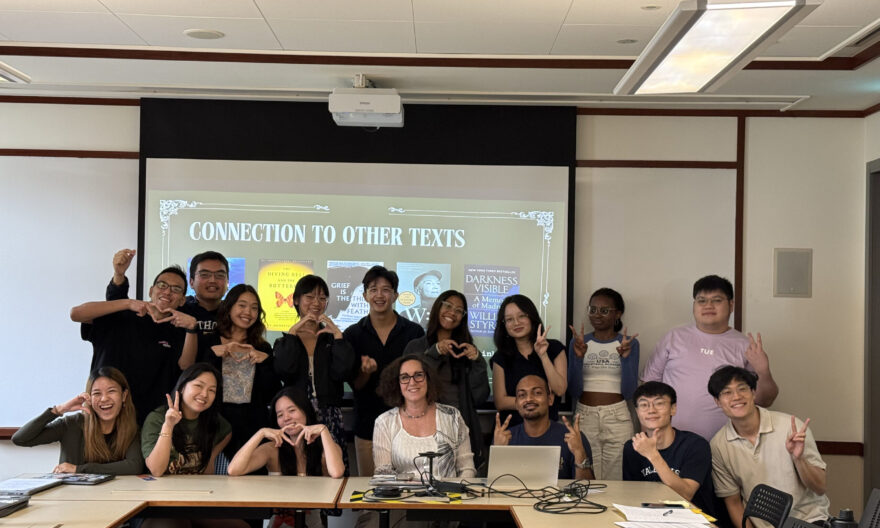Yale-NUS social sciences faculty undertake research in the ASEAN region
Diverse research topics range from urban social issues to attitudes towards female political leadership
Yale-NUS faculty actively engage in research, expanding intellectual horizons and contributing to wider knowledge in their fields, especially in the ASEAN (Association of Southeast Asian Nations) region. In this article, we feature research projects by Associate Professor of Social Sciences (Sociology, Urban Studies) Ho Kong Chong, Assistant Professor of Social Sciences (Political Science) Steve Monroe, and Assistant Professor of Social Sciences (Urban Studies) Justin Stern.
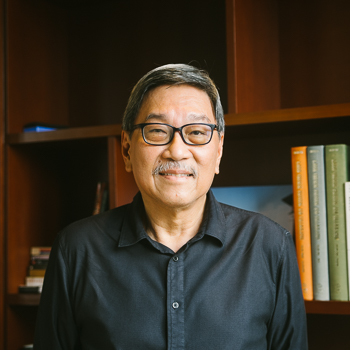 Associate Professor of Social Sciences (Sociology, Urban Studies) Ho Kong Chong. Image provided by Ho Kong Chong.
Associate Professor of Social Sciences (Sociology, Urban Studies) Ho Kong Chong. Image provided by Ho Kong Chong.
Assoc Prof Ho led the “Belt and Road Initiative (BRI) and Student Mobilities in China-Southeast Asia” under Singapore’s Ministry of Education Tier 2 grant. The BRI has played a significant role in shaping global economic cooperation and integration since its launch by China in 2013. Encompassing Europe, Africa, Central Asia, and Southeast Asia, the BRI targets policy coordination, infrastructure connectivity, trade, financial integration, and people-to-people bonds. Education and training have been critical components of this initiative. This project captures a pivotal moment in regional higher education, where the BRI is (re)shaping student mobilities and academic linkages, while expanding the region’s knowledge spaces.
Assoc Prof Ho shared that while extensive research has been conducted on the BRI’s political, geostrategic, and geoeconomic implications, particularly regarding large infrastructure projects, less attention has been paid to human mobilities and youth perspectives. He emphasised that young people are key participants in BRI-linked mobilities for education, work, and leisure, thus “it is essential to explore how young people are involved in BRI-linked mobilities—in terms of educational and training opportunities, career prospects, and future movements—and how these mobilities, in turn, shape their understanding of the region, the world, and their participation in BRI developments.” His research aims to fill this gap by investigating education as a site through which young people’s mobilities are being reconfigured and articulated in relation to the BRI.
Dr Kris Hyesoo Lee, Research fellow for this project based at the Asia Research Institute, shared insights into the challenges of conducting large-scale research across multiple sites across China and Southeast Asia, adapting to evolving policies, as well as navigating both online and offline borders. She explained, “No academic research exists in isolation from reality; it is thus influenced by various factors.” Due to the nature of post-pandemic arrangements, their research had to adapt to restrictions on mobility as a result of COVID-19. As China implemented a new Personal Information Protection Law in November 2021, they collaborated with local individual researchersin Southeast Asia and Guangxi University in China to assist with data collection, adhering to new legal measures. Furthermore, since the project involved collecting data from social media platforms, the team carefully navigated copyright regulations specific to each platform. They actively adapted research processes to comply with legal, institutional, and ethical standards, ensuring the research was conducted responsibly, with findings that are robust and credible.
While they are in the process of publishing and sharing the study’s findings, Assoc Prof Ho and Dr Lee hope that this enhanced understanding will contribute to more effective policies and strategies that benefit ASEAN citizens by promoting sustainable development, educational opportunities, and equitable economic growth within the region. “By shedding light on these dynamics, our project aims to inform policymakers, educational institutions, and communities in ASEAN countries, enabling them to better understand and manage the impacts of these migrations on their societies,” said Assoc Prof Ho.
 Assistant Professor of Social Sciences (Political Science) Steve Monroe. Image provided by Steve Monroe.
Assistant Professor of Social Sciences (Political Science) Steve Monroe. Image provided by Steve Monroe.
Asst Prof Monroe has conducted a series of surveys across Southeast Asia with Associate Professor of Political Science Risa Toha of Wake Forest University (former Yale-NUS College Assistant Professor of Social Sciences (Political Science)), to gauge public attitudes towards female political representation in ASEAN. This ongoing project is based in the Philippines, Indonesia, Malaysia, and Singapore. From September to November 2023, he conducted a vignette experiment embedded in an original in-person survey across three municipalities in Mindanao, Philippines involving 1,200 residents to examine whether and how dynastic ties shape current attitudes towards female candidates. On his motivation in conducting this research, Asst Prof Monroe shared, “While there’s extensive literature on why political parties and political incumbents nominate dynastic female candidates, there is a gap in voters’ perception of these candidates.” Current findings in his research reveal that voters are not strongly opposed to or in favor of dynastic female candidates, with further insights pending on perceptions of female candidates related to military commanders and mayors.
Working with a team of enumerators to survey the population, Asst Prof Monroe highlighted a diverse set of challenges that they faced in Mindanao, Philippines. “In addition to navigating lots of bureaucratic paperwork, there were also security concerns in neighbouring towns where they were running the survey. Enumerator safety is paramount, so we made sure to avoid insecure locations and politically sensitive times,” he stated when reflecting on the research process.
This ongoing project is imbued with Asst Prof Monroe’s hopes of advancing the understanding of students, academics and policymakers regarding how Southeast Asian voters view female candidates. He shared, “Our preliminary results suggest that, at least in the realm of public opinion, non-dynastic female candidates are not at a political disadvantage vis-à-vis dynastic ones. Dynastic politics are often associated with a host of economic and political ills. We hope these findings will inspire more non-dynastic female candidates to contest elections and diversify the political arena.”
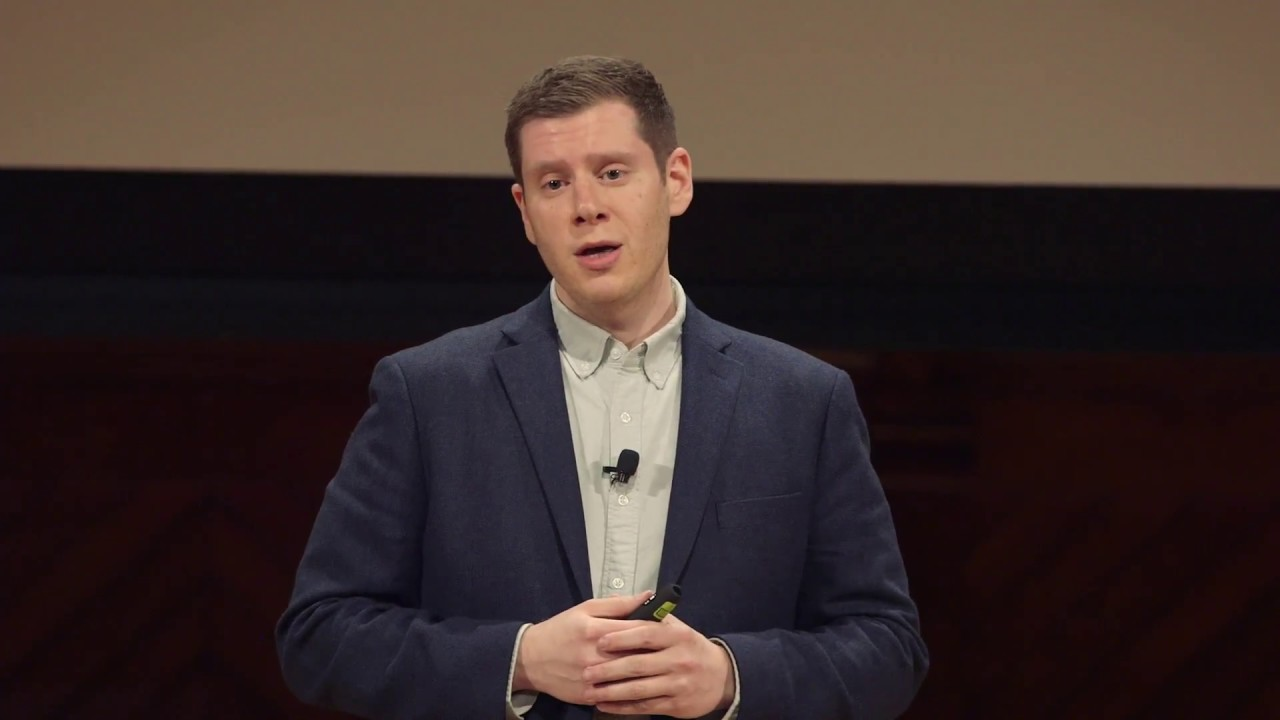 Assistant Professor of Social Sciences (Urban Studies) Justin Stern speaking at the 2018 Harvard Horizons symposium on his talk, “Global Outsourcing, Local Transformations: Business Process Outsourcing and Urban Restructuring in the Philippines.” Image captured from talk by Harvard Kenneth C Griffin Graduate School of Arts and Sciences: https://www.youtube.com/watch?v=f3PEGQxiQlI&t=410s .
Assistant Professor of Social Sciences (Urban Studies) Justin Stern speaking at the 2018 Harvard Horizons symposium on his talk, “Global Outsourcing, Local Transformations: Business Process Outsourcing and Urban Restructuring in the Philippines.” Image captured from talk by Harvard Kenneth C Griffin Graduate School of Arts and Sciences: https://www.youtube.com/watch?v=f3PEGQxiQlI&t=410s .
Asst Prof Justin Stern has been conducting research on urban implications and accessibility regarding the nocturnalisation of work in the Philippines’ Business Process Outsourcing (BPO) sector since 2012. His motivation stems from a personal experience visiting Metropolitan Manila for a housing research project. On his first night, wide awake at 3am, he ventured outside in Eastwood City and found the whole district buzzing with movement and energy.
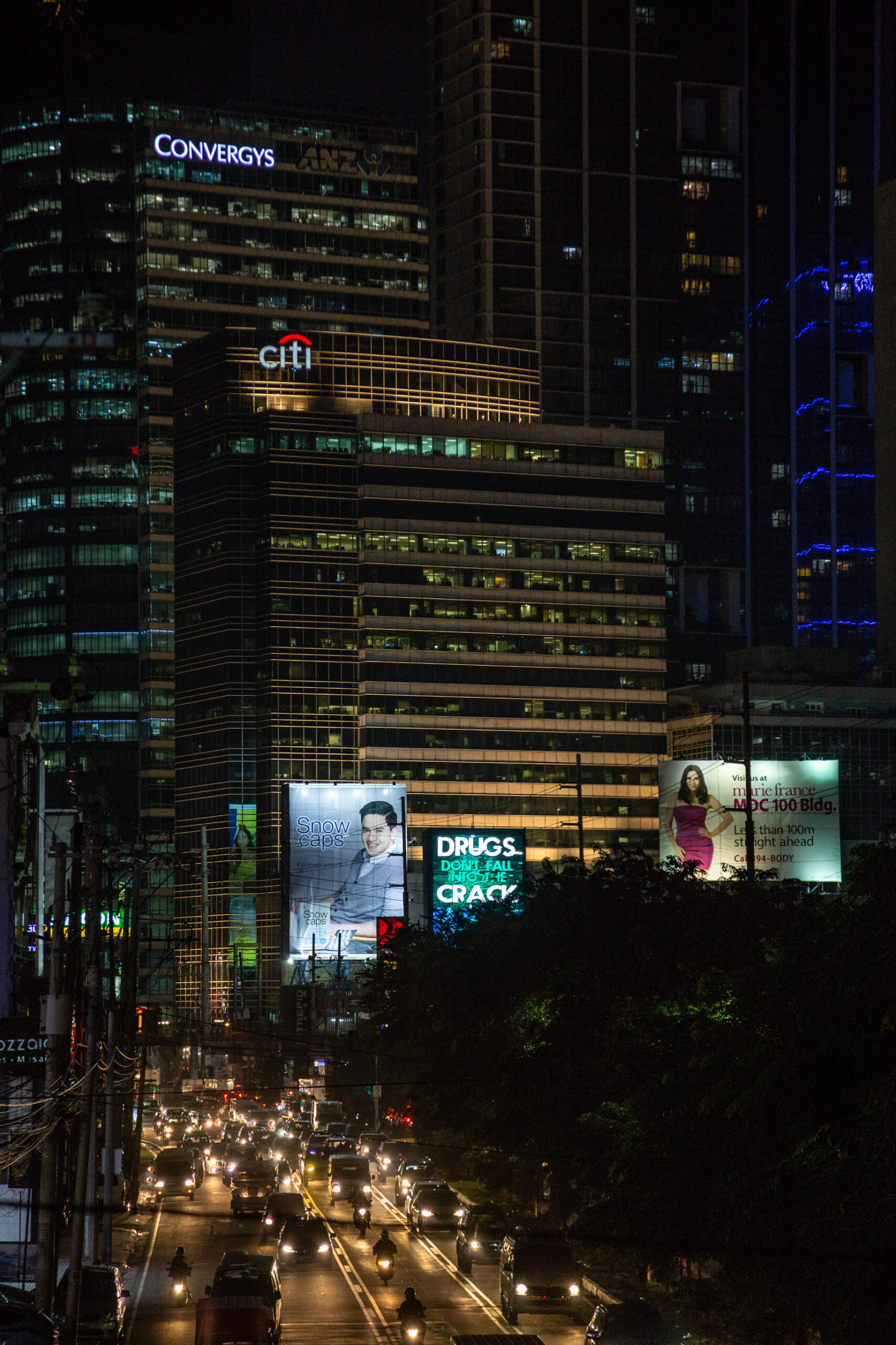 Eastwood City at night. Image provided by Hansley Yunez.
Eastwood City at night. Image provided by Hansley Yunez.
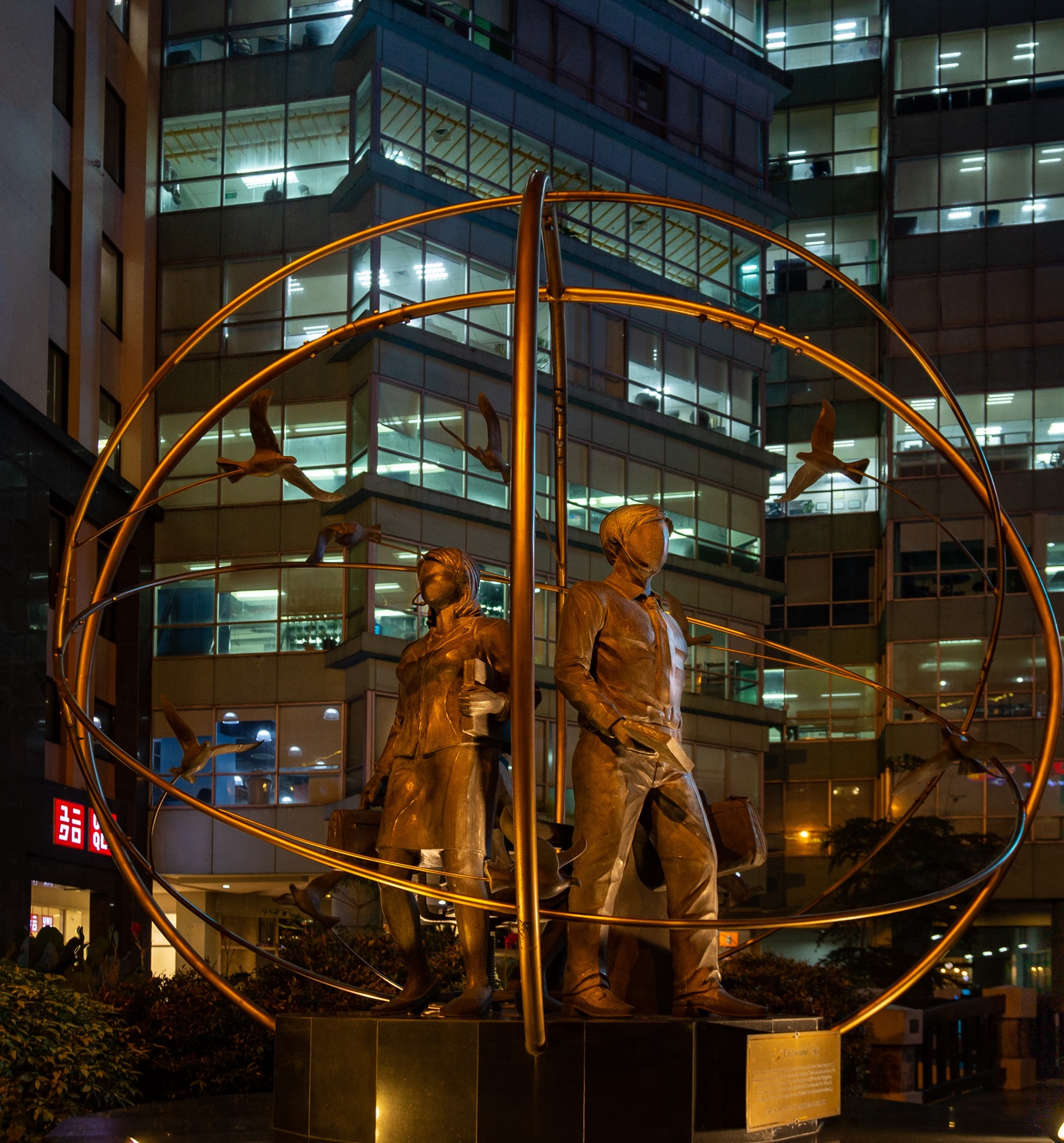 Monument to the Filipino Call Center Worker, Eastwood City, Metro Manila. Image provided by Justin D. Stern.
Monument to the Filipino Call Center Worker, Eastwood City, Metro Manila. Image provided by Justin D. Stern.
“I started asking people around me why it was so busy in the early morning, and that’s when I discovered the Philippines’ huge customer service call center industry, providing voice-based support to other countries. Most people worked at night and in the early morning to serve clients based in the United States (US). I found this fascinating, and I realised it was an underexplored area of research,” Asst Prof Stern shared. Thus, this subject became his PhD dissertation, growing in research content and direction. “I found that the rapid expansion of this industry is generating a new kind of urban agglomeration, one in which issues of time – and the specific time zone(s) served – plays a central role in the organisation of physical space,” Asst Prof Stern reflected. He noted that the urban nocturnalisation of work is not confined to business districts, but throughout the city and that the workers’ irregular work hours affect adjacent urban districts.
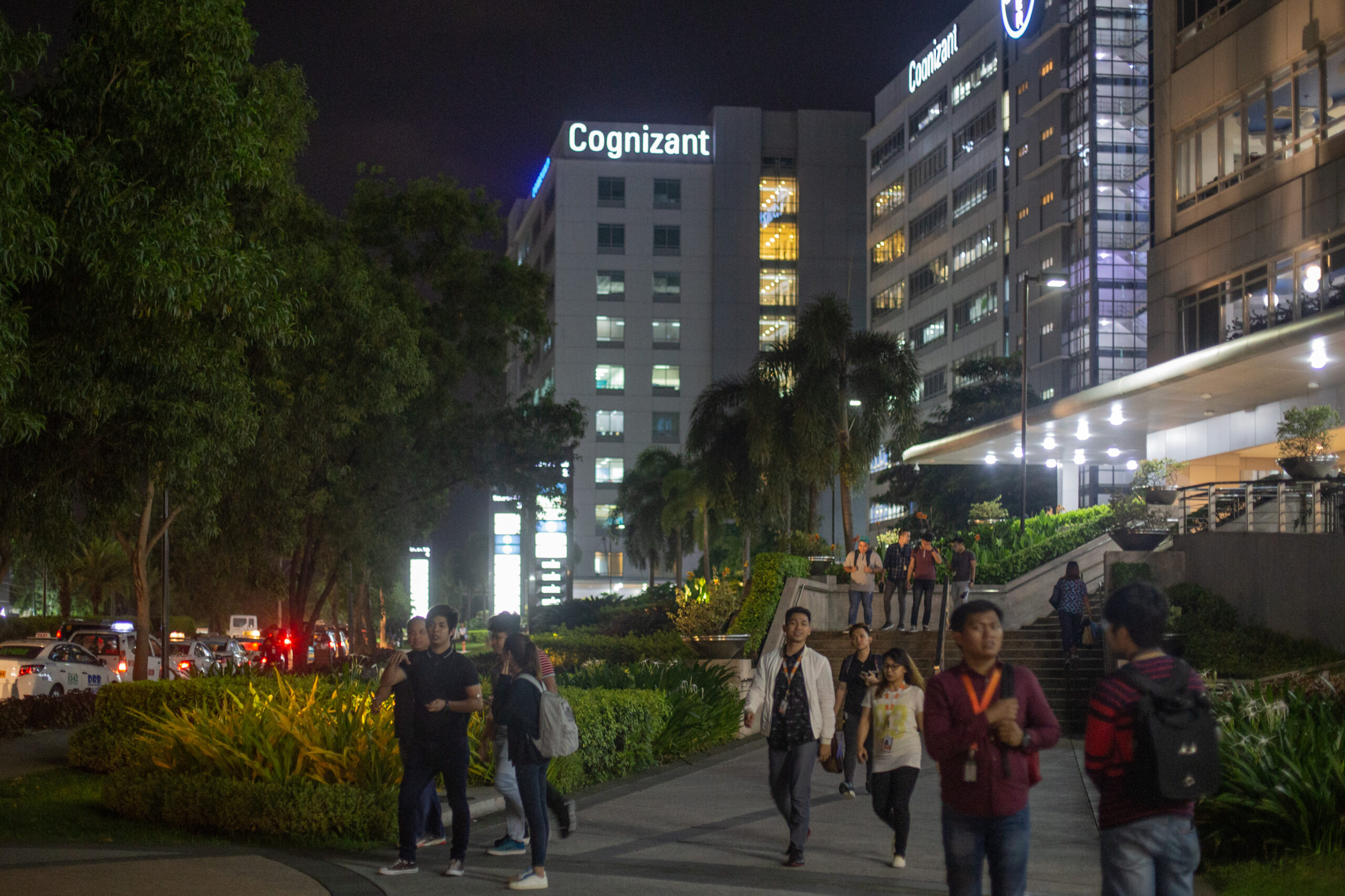 McKinley Hill Cyberpark, Metro Manila, Philippines. Image provided by Hansley Yunez.
McKinley Hill Cyberpark, Metro Manila, Philippines. Image provided by Hansley Yunez.
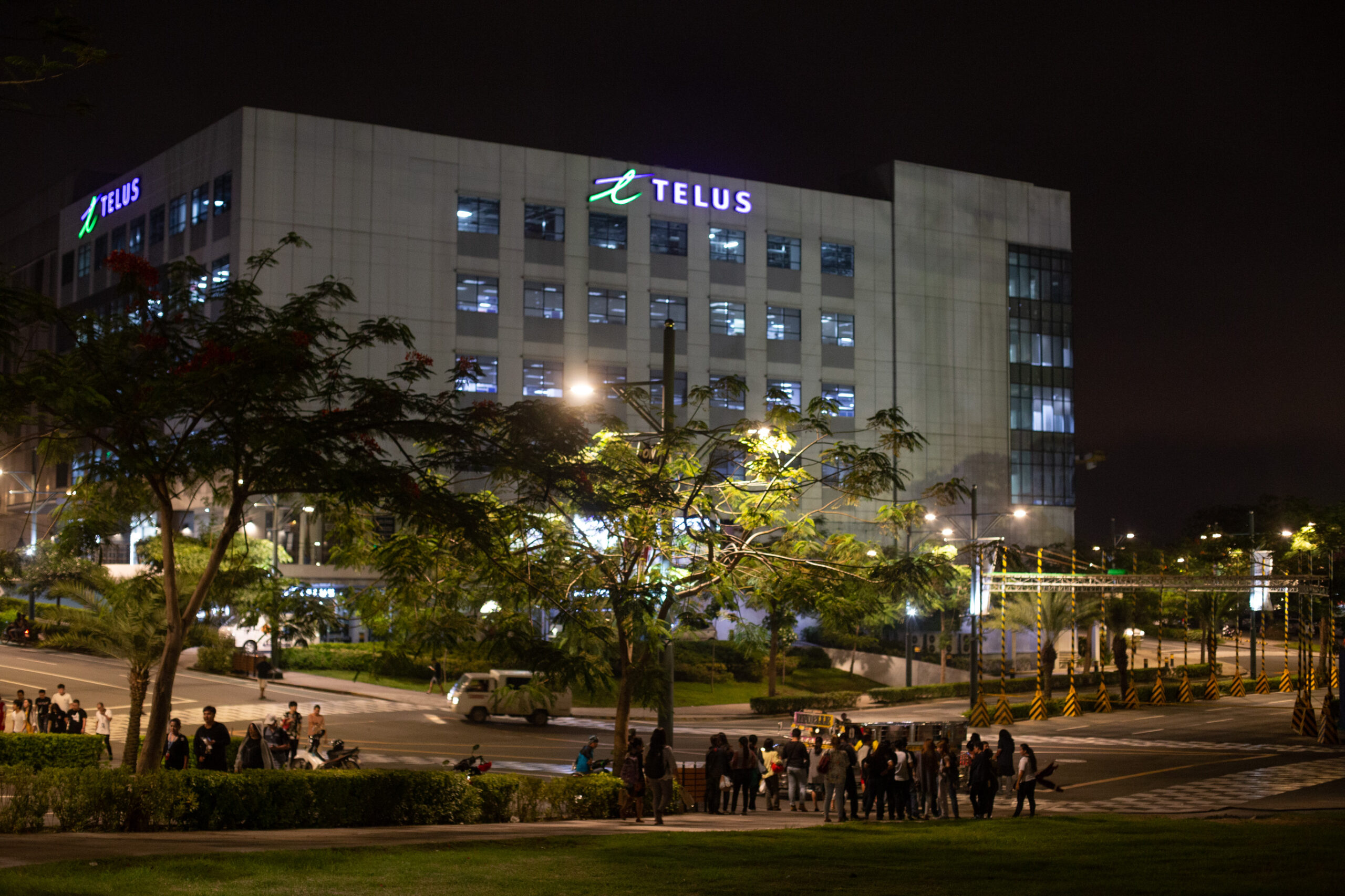 McKinley Hill Cyberpark, Metro Manila, Philippines. Image provided by Hansley Yunez.
McKinley Hill Cyberpark, Metro Manila, Philippines. Image provided by Hansley Yunez.
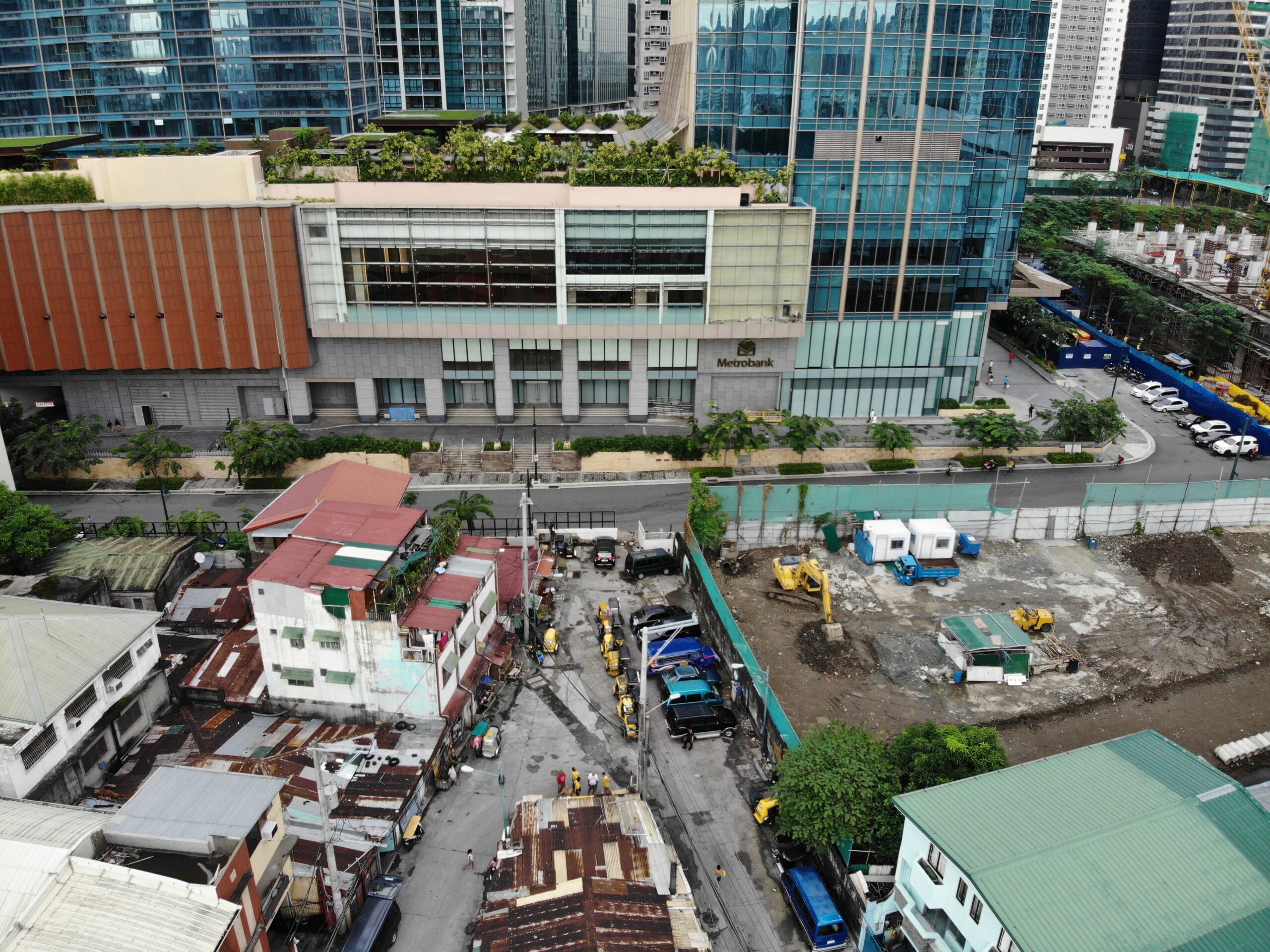 Boundary between Bonifacio Global City and Barangay South Cembo, Metro Manila, Philippines. Image provided by Steven Chen.
Boundary between Bonifacio Global City and Barangay South Cembo, Metro Manila, Philippines. Image provided by Steven Chen.
Asst Prof Stern spent over a year in the Philippines, sharing that the biggest obstacle was conducting research from late evening and early into the morning to facilitate interviews, analyse sites, create maps, and more to yield insights about the daily lives of people working in the Philippines’ call center industry. This group of individuals found difficulty in adjusting to regular schedules on weekends or relating to those working a traditional 9-to-5 job. “It was incredibly insightful, but also super challenging,” he shared. As the research enters the publishing phase, he shared, “I hope this research will bring to light the challenges faced by people who work at night, including those related to urban social life and public health. I hope it will show how better urban planning and governance can cater to the needs of the over one million people in the Philippines who work night shifts to support clients in North America.”

